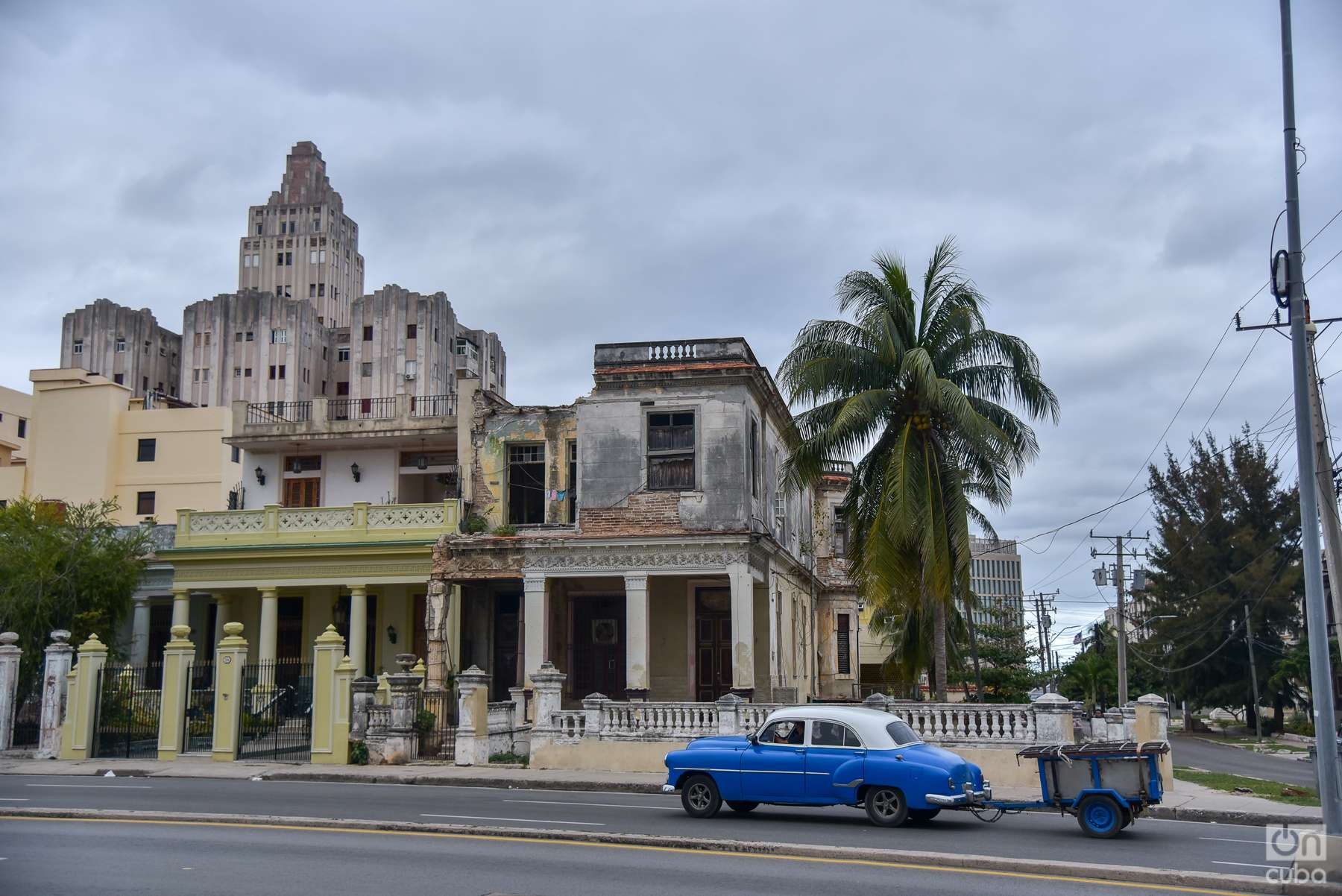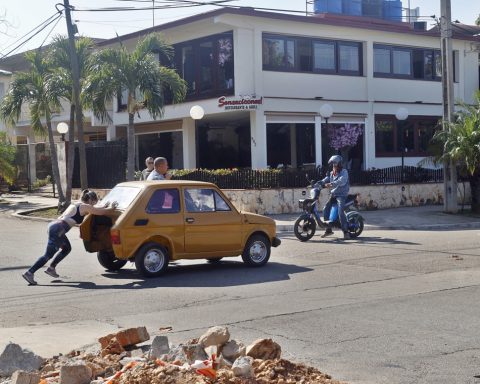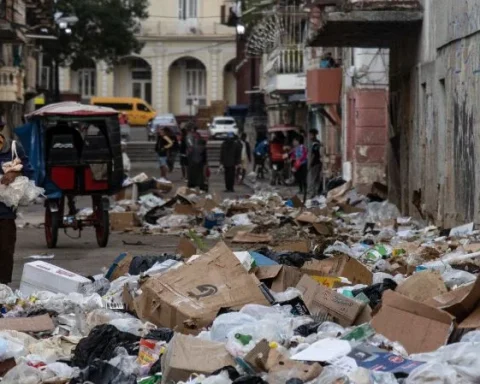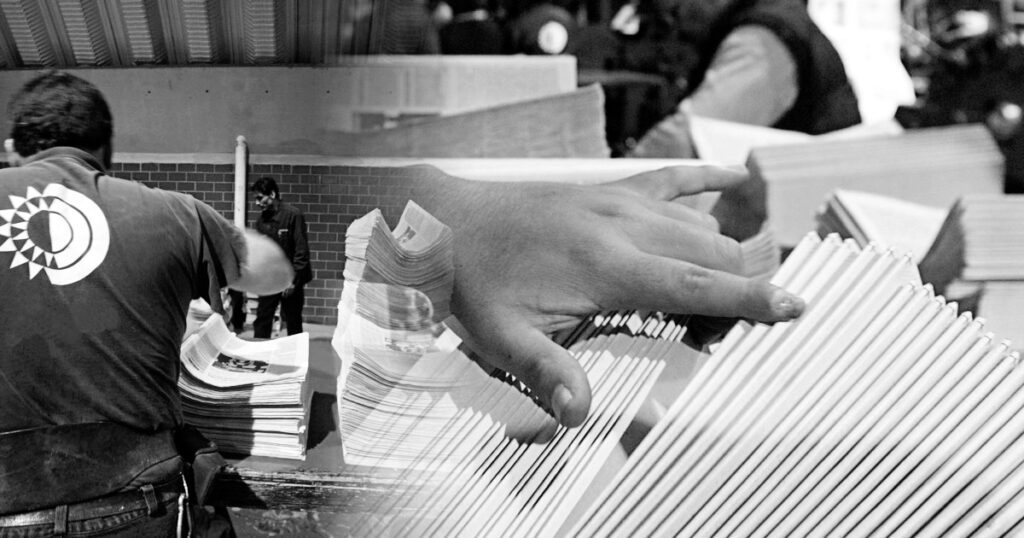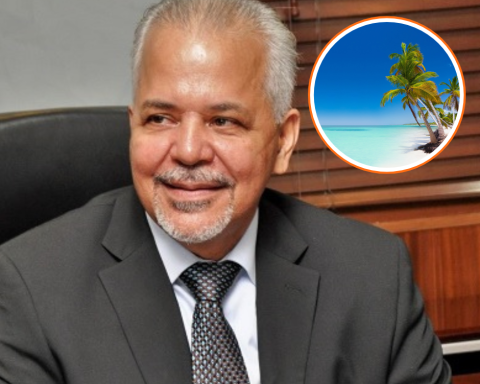The Cuban Minister of Justice, Oscar Manuel Silvera, stated in statements to Financial Times that Cuba is willing to talk with the “legitimate” creditors about the payment of its millionaire external debt.
“Our country’s position is that we recognize our legitimate debts and our legitimate creditors. Our position is first of all to recognize them, to be transparent, to always speak with our creditors and to seek terms that are mutually favorable to comply with these obligations,” Silveira explained to the British newspaper.
These statements occur when a few days ago the hearing in the High Court of Englandwhere a dispute is being settled over several debt titles claimed by the investment fund CRF I Limited to Cuba for a value of about 72 million dollars.
According to FT, Private sector bondholders, who are owed an estimated $7 billion of Cuban debt, say the island’s government has for years obstructed their negotiating proposals.
Cuba ministers express willingness to engage with ‘legitimate’ creditors https://t.co/JdtCPMzcF1
—Financial Times (@FT) February 7, 2023
In 2015, the Cuban government reached an agreement with the Paris Club of creditor nations to cancel more than three quarters of the debt that the country was carrying at that time, but this step has not materialized with private creditors.
According to the article, international investors would consider a restructuring agreement with private creditors as a precondition for Cuba to regain access to financial markets to access credit, after an absence of decades.
Without that possibility, the battered Cuban economy would have a much more difficult time reversing the deep crisis it is going through, which has worsened due to the impact of the COVID-19 pandemic, the sanctions imposed by the United States and the ineffectiveness of the measures adopted to overcome the complex economic situation.
Cuban debt is barely listed on secondary markets due to a lack of demand. In addition, the sanctions that the US administration has imposed on the government of the island prevent the funds and citizens of that country from buying it. When you trade, you get less than 10 cents on the dollar, says the FT.
Cuba’s immediate challenge is to resolve its legal battle with the CRF I fund, registered in the tax haven of the Cayman Islands. The Government is reluctant to recognize him as a legitimate creditor, and therefore pay him a million-dollar figure for a debt derived from loans issued by two European banks in 1984.
After the hearing is over, Judge Sara Cockerill, of the Commercial Division of the High Court of London, must decide if CRF I is a legitimate creditor of the Central Bank of Cuba (BCN) and of the Republic of Cuba, from where it is argued that this The fund irregularly acquired the assignment of the rights to that debt, held by the ICBC Standard Bank, a British subsidiary of the Chinese bank ICBC.
A resolution of the case pending judgment in favor of CRF I could pave the way for other private sector creditors to sue the Government of Cuba.
“CRF is not our creditor and never has been because they did not validly acquire this debt… We maintain that there was a proven case of corruption in this area,” Silvera said.
London Proceedings: BNC Chairwoman Alleges CRF I Limited Has Failed To Acquire Debt ‘Legally’
Cuban citizen Raúl Olivera Lozano, who was director of Operations at the BCN, was sentenced in Cuba to 13 years in prison for his role in the matter.
Last week Olivera testified online before the court in London and “clearly explained how these unfortunate events unfolded,” added the Cuban minister.
David Charters, president of CRF, also explained at trial that he had repeatedly tried to negotiate a debt restructuring in a mutually beneficial way.
“We put some pretty imaginative suggestions on the table. But they completely ignored the proposals or simply rejected them out of hand,” the manager told FT.
CRF I Fund admits that it acquired Cuban debt to initiate a lawsuit for non-payment
CRF has dismissed the bribery allegations, and its lawyers pointed out in arguments in London court that Cuba withdrew them from its legal case just before proceedings opened, what they described as “a belated acknowledgment of the extremely serious allegations made.” they were baseless and should never have been done.”
Silvera, however, said that Cuba “did not ask the English judge to prove that there had been corruption. . . because that has already been proven in Cuba.”
John Kavulich, head of the US-Cuba Economic and Trade Council, a private non-profit group, believes that the London trial “imports much more than most people are appreciating,” according to the outlet.
“What this lawsuit and trial has done is draw attention to how much Cuba owes, that they don’t pay what they owe, and that they are fighting over paying what they owe. . . From a marketing standpoint, it’s a disaster,” adds Kavulich.
CRF I Fund admits that it acquired Cuban debt to initiate a lawsuit for non-payment
For his part, the Cuban First Vice Minister of Finance and Prices, Vladimir Regueiro, also in London for the court hearing, commented to the FT that his government “was always ready to hold the best negotiations to find the terms and conditions that fit the current conditions of our economy” with the creditors “who legitimately hold the title.”
CRF is part of a group of creditors that owns $1.4 billion of Cuban debt. The fund reportedly made a proposal to restructure the Cuban debt in 2018, but received no response from Havana. The group includes two other funds, Stancroft Trust and Adelante Exotic Debt, reports ft.
The coronavirus pandemic caused an 11 percent drop in Cuba’s gross domestic product in 2020, Regueiro said. Growth has been slow since then, while annual inflation is around 40%, recalls the media.
At the same time, the “unprecedented” tightening of US economic sanctions against Cuba under the Trump administration had severely affected the economy, Regueiro said.
“However, ratifying that position of recognizing the debts that our government has, there have been important negotiations at the level of companies, institutions [and] directly between banks. . . and with the government as well, with other sovereign governments,” he added.
The article points out that CRF began to build positions in Cuban debt from 2009, buying with the hope of obtaining profits in a future restructuring.
“We have been accused of being a vulture, but if we wanted to be aggressive, we could have litigated the entire portfolio… We could have fired a volley of $1.3 billion and we didn’t,” Charters argued.
According to the article, the litigating fund had suggested that Cuba negotiate a cash sum for the two pieces of debt in dispute, with a large reduction in the amount owed and financing for payments from a surcharge on visiting cruise ships or planes.
A verdict is expected in about three months, but the losing party could appeal to a higher court, warns the Financial Times.
